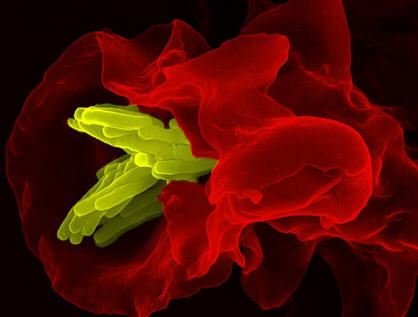Why are we still fighting tuberculosis?

It's a disease that has plagued humans since the Paleolithic era: tuberculosis. After centuries of deaths and decades of research, why are we still fighting this deadly disease? ACS Headline Science spoke with Clifton Barry, Ph.D., head of the tuberculosis unit at the National Institutes of Health about the challenges and breakthroughs in TB research. Credit: The American Chemical Society
ACS Headline Science spoke with Clifton Barry, Ph.D., head of the tuberculosis unit at the National Institutes of Health about the challenges and breakthroughs in TB research. Check out the interview in our latest episode: https:/
###
Subscribe to the ACS channel at http://bit.
The American Chemical Society is a nonprofit organization chartered by the U.S. Congress. With more than 158,000 members, ACS is the world's largest scientific society and a global leader in providing access to chemistry-related research through its multiple databases, peer-reviewed journals and scientific conferences. Its main offices are in Washington, D.C., and Columbus, Ohio.
To automatically receive news releases from the American Chemical Society, contact newsroom@acs.org“>newsroom@acs.org.
Media Contact
All latest news from the category: Health and Medicine
This subject area encompasses research and studies in the field of human medicine.
Among the wide-ranging list of topics covered here are anesthesiology, anatomy, surgery, human genetics, hygiene and environmental medicine, internal medicine, neurology, pharmacology, physiology, urology and dental medicine.
Newest articles

A universal framework for spatial biology
SpatialData is a freely accessible tool to unify and integrate data from different omics technologies accounting for spatial information, which can provide holistic insights into health and disease. Biological processes…

How complex biological processes arise
A $20 million grant from the U.S. National Science Foundation (NSF) will support the establishment and operation of the National Synthesis Center for Emergence in the Molecular and Cellular Sciences (NCEMS) at…

Airborne single-photon lidar system achieves high-resolution 3D imaging
Compact, low-power system opens doors for photon-efficient drone and satellite-based environmental monitoring and mapping. Researchers have developed a compact and lightweight single-photon airborne lidar system that can acquire high-resolution 3D…





















